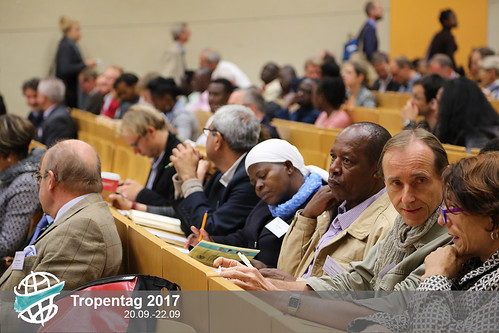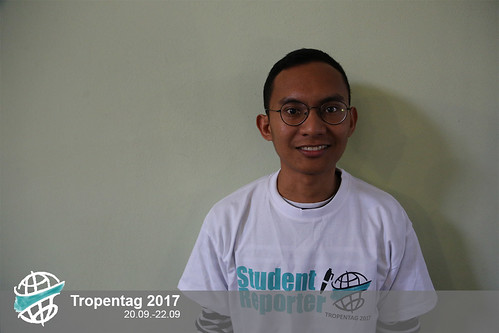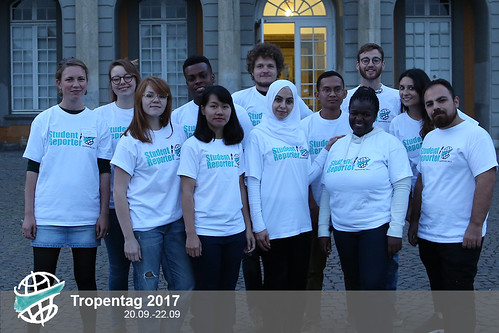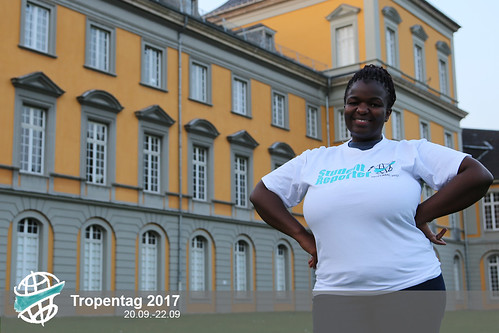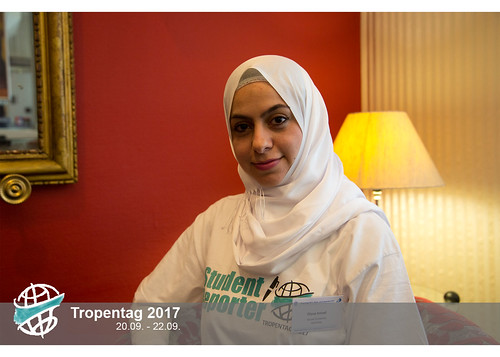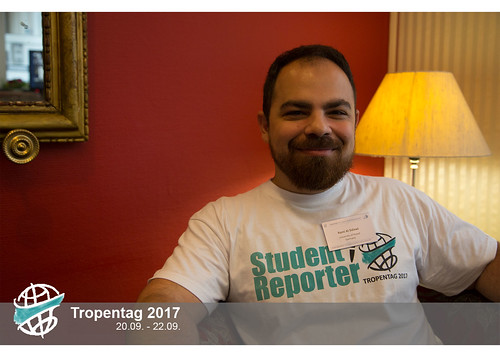Blogs

Food for Thought: The Welcome Addresses
Wed, 09/20/2017 - 16:21 — marlemkeIt’s the 19th international conference since 1999, and over 1,000 registered participants from over 68 countries assembled to discuss our vision of a new path for agriculture, while still providing for the growing world population.
The inaugural speaker, Professor Mathias Becker from University of Bonn, emphasized the crucial role of young scientists and journalists, giving special thanks to us student reporters, who” link the world outside with the Tropentag conference”.
In accordance with the representative of the German Minister of Economic cooperation and Development, both acknowledged the massive deprivation of natural resources from intensive agriculture, e. g. deforestation, big monocultures and pesticide use. They also both mentioned that feeding the soaring demand for food, even while arable land was limited, would require intensification.
Can intensification be the only answer and solution? No, nor can CRISPR/Cas9 be, said Michael Hoch, Rector of the University of Bonn. He had further questions, what role does modern biotechnology play? How can small-scale farmers in South Asia and Sub-Saharan Africa be considered as a key factor to considerably change agricultural output? In contrast to keynote speaker Monty Jones, the minister of agriculture of Sierra Leone, the welcome speakers were less certain about how to feed the world in the future.
Ag's Future or Past?
Wed, 09/20/2017 - 16:19 — megreslerAt what point should a researcher with limited understanding of the socio-political context and no lived experience in a country, feel comfortable questioning the strategies of an expert from that country?
Speaking of food producers in Sierra Leone in his Tropentag 2017 keynote speech, World Food Prize Laureate Monty Jones claimed, “these people deserve to use external inputs, such as fertilizers, improved seeds, gm."
Looking to the future, shouldn't we transform the food system, rather than just reform an admittedly flawed system? We must be openly critical of existing production standards that shape these systems, for example, agricultural production methods that rely on mechanization and rely on external inputs. Jones’ direct emphasis on biotechnological innovation and production intensification in Sierra Leone seem to conflict with, at least in my mind, a pathway towards sustainable transformation.
Fadli, the man with the plan
Wed, 09/20/2017 - 12:29 — TTMultinational team, same passion
Wed, 09/20/2017 - 12:24 — lizkusiaLiz eats bugs
Wed, 09/20/2017 - 12:19 — TTGiulia, looking forward to the future
Wed, 09/20/2017 - 12:05 — TT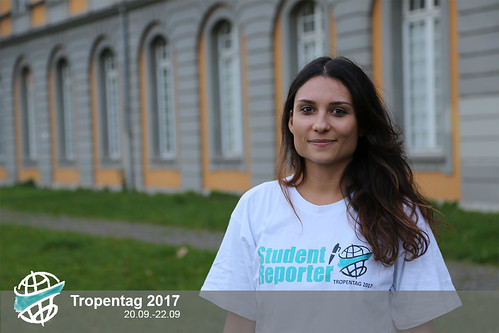
Diana, "The Princess"
Wed, 09/20/2017 - 10:37 — uk044922Rami, video enthusiast!
Wed, 09/20/2017 - 10:33 — lizkusiaRami hails from Syria and he loves connecting with people. Rami is pursuing a PhD in Organic Agricultural Sciences at the University of Kassel, Witzenhausen, Germany. His passion for film led him to the position of student reporter at Tropentag 2017. This was his chance to shine. He would be able to capture on film current research affecting food security globally. So, he hopped on a train to get to Bonn and tell the Tropentag story. Otherwise, he hopes build networks at the conference and improve his overall skills as a science reporter.





